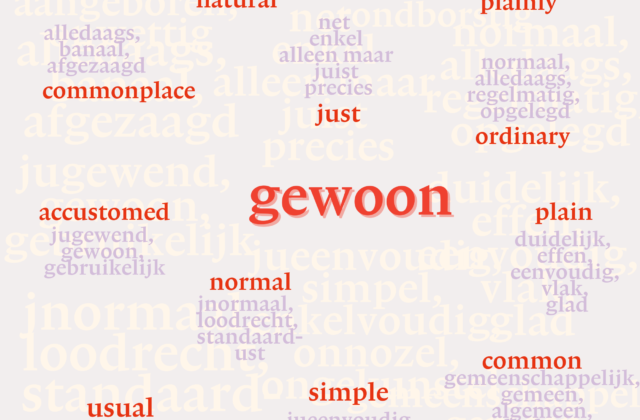There was a lot of debate about getting used to “the new normal” during the heydays of the pandemic: keeping physical distance (oddly called “social distancing”), washing hands, protecting oneself with a facemask, working from home, etc. Almost all of us followed the new rules. Adapting to new rules is, however, not the same as embracing them as “the new normal”. Since NIAS has re-opened last February – at the start of the second semester- I realize how much we have missed the “old normal”. Even more dramatic: that NIAS was not NIAS during the “new normal”. We actually love the “old normal”.
I would never have thought to write that sentence: “we love the old normal”. It is not necessary to be a full-fledged Foucauldian to be suspicious of anything or anybody that claims normalcy (the normal being perceived as repressive and disciplining). The ‘common’ and the ‘familiar’ are omnipresent in European political discourse practices, as one of this year’s theme groups on the politics of (de)familiarization has shown. How then is it possible that we embrace the return of the normal as the most liberating experience of this year…?
Coincidentally, I recently finished the manuscript of a new book – written with Menno Hurenkamp- in which we analyze how ‘Dutchness’, ‘Dutch’ ordinary behavior and the ‘ordinary man’ are mobilized by populists and nativists to marginalize those perceived as non-Dutch: black and Muslim citizens.
But, while working on the book, we discovered that that is not the full story: the ordinary, the normal, is not just a negative, exclusionary force. Standing on the shoulders of the American sociologist Erving Goffman, we analyze how the habitual, the ordinary, the predictable are actually conditions for peacefully living together: our everyday interactions are based on, and reproduce, the ordinary as a positive force.
This, of course, does not mean that what is considered to be normal is not changing over time. It does. The normal at NIAS has certainly changed over the past decades – something we became even more aware of during our 50th anniversary, celebrated in 2021, during which we published a special book on NIAS history: 50 years of Academic Freedom.
The new normal” was, however, not the perfect fit for us, to put it mildly. Building and fostering an intellectual community online is hard. I remain, therefore, extremely impressed by the first semester fellows, who were such an engaged group, even online. But the second semester fellows – “the old normals” – have been able to experience the habitual and the ordinary as a force for good. In close proximity and regular daily encounters, serendipity occurs more easily. And with it, the novel ideas and new imaginaries that make NIAS such a magical space.




